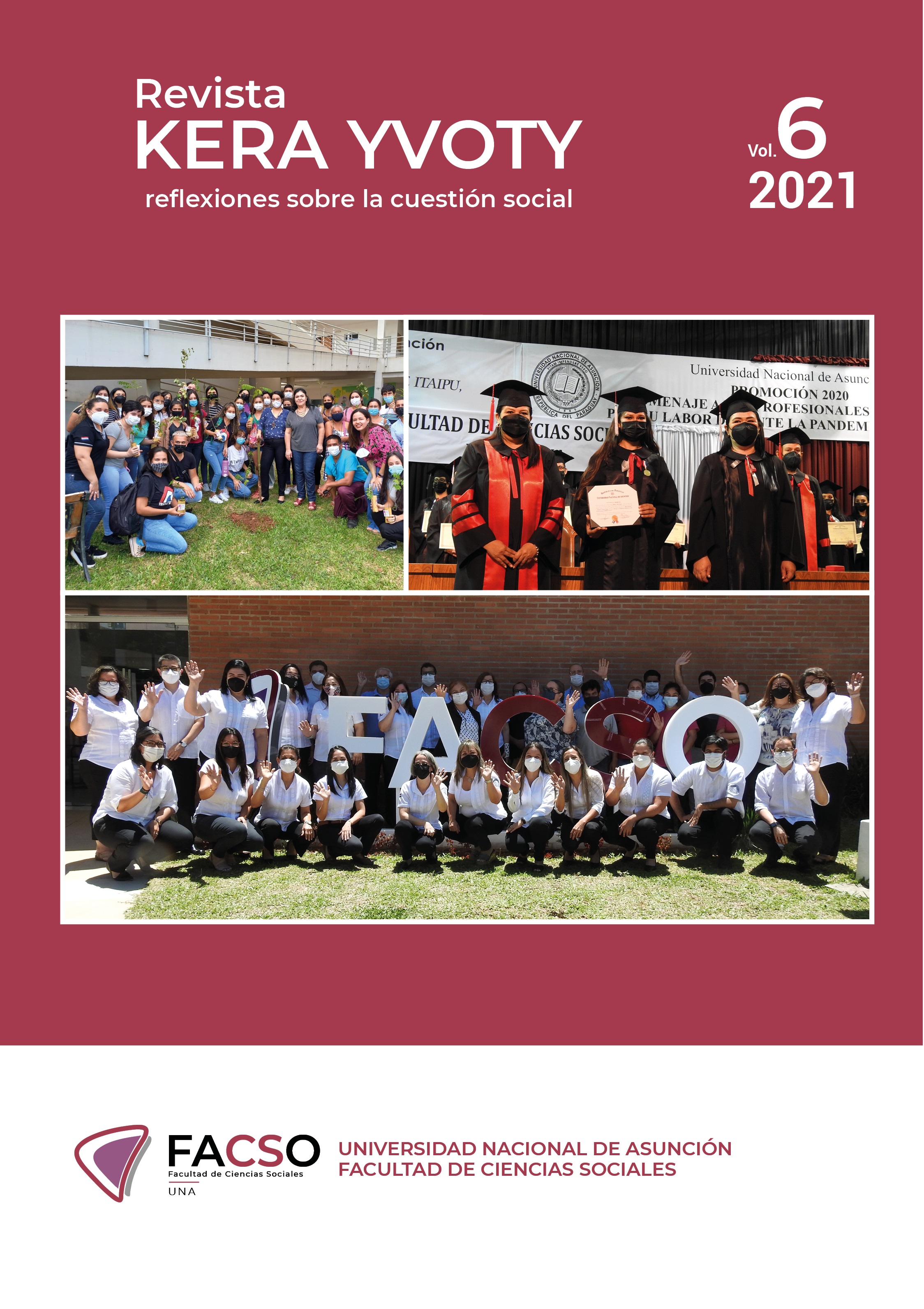Abstract
The objective of this research is to analyze the characteristics of the child servanthood and its implication in the lives of men and women who experienced this practice, from the central department, in the year 2020. It is a qualitative study of descriptive level that used the methodology of life stories since it sought to know the experience of people in their experience as a child servant. From a critical analysis taking into account the many dimensions selected, such as: working conditions, emotional bond and incidence of child servanthood in people’s lives. This work has the aspiration to provide critical knowledge to this problem, which affects thousands of women and men in this country. On the other hand, it seeks to generate inputs to professional work that allows actions based on future interventions in cases of child servanthood. It can be mentioned that, among the main findings, the research shows that the men and women interviewed come from vulnerable or low-income families, or from large families, all of whom went to live in the non-relative’s homes in their childhood. In two of the five cases, were possible to show that child servanthood favors school dropout. All of them, from their diverse experiences, used the capacity of resilience as a way to diminish the experienced in the home of third parties.
References
Anti - Slavery International. (2005). Manual de buenas prácticas para las intervenciones de los programas en pro de los trabajadores domesticos infantiles. The printed word.
Black, M. (1997). El trabajo doméstico infantil. Anti - Slavery International.
Carneri, S. (2017). La codicia por la tierra en Paraguay. El País. https://elpais.com/elpais/2017/02/07/planeta_futuro/1486488199_675583.html
Constitución de la República del Paraguay, 20 de junio de 1992.
Céspedes, R. (2006). Infancia y adolescencia trabajadora de Paraguay: Evolución 2001-2004 y análisis del módulo de la encuesta 2004.
CONAETI. (2018). Estrategia Nacional de Prevención y Erradicación del Trabajo Infantil y Protección del Trabajo Adolescente del Paraguay 2019 - 2024.
Deslandes, S. F. (1994). Atenção a Crianças e Adolescentes Vítimas de Violência Doméstica: Análise de um Serviço. Cad. Saúde Públ., Rio de Janeiro, 10 (supl. 1), 177-187.
García, C., & Vera, A. (2016). Ejes para pensar la Matriz Histórico-Crítica en la formación del Trabajo Social en Paraguay. Kera Yvoty: Reflexiones sobre la cuestión social, 1, 31-42. https://revistascientificas.una.py/index.php/kerayvoty/article/view/1021
García, M. (2018). Reproducción social de la vida; el caso de los estudiantes de TS - UNA. Kera Yvoty: reflexiones sobre la cuestión social, 3, 107-117. https://revistascientificas.una.py/index.php/kerayvoty/article/view/455
Gavilan, D., & Gavilan, S. (2000). Condiciones de vida de las/os criadas/os en Asunción. http://bibliotecavirtual.clacso.org.ar/Paraguay/base-is/20120910042112/Doc69.pdf
Ley N° 57/1990, Aprueba y Ratifica la Convención de las Naciones Unidas sobre los Derechos del Niño.
Organización Internacional del Trabajo & DGEEC. (2013). Encuesta Nacional de Actividades de Niños, Niñas y Adolescentes 2011: Magnitud y características del trabajo infantil y adolescente en el Paraguay.
Organización Internacional del Trabajo. (2006). Módulos de trabajo en aula para docentes. Asunción.
Organización Mundial de la Salud. (2020). Maltrato infantil. https://www.who.int/es/news-room/fact-sheets/detail/child-maltreatment#:~:text=El%20maltrato%20infantil%20se%20define,salud%2C%20desarrollo%20o%20dignidad%20del
Riquelme, Q. (2016). La agricultura campesina en Paraguay según las teorías clásicas sobre la cuestión agraria. Kera Yvoty: Reflexiones sobre la cuestión social, 1, 80-90. https://revistascientificas.una.py/index.php/kerayvoty/article/view/1028
Riquelme, Q., & Vera, E. (2015). Agricultura campesina, agronegocio y migración. CDE.
Rojas, L. (2018). Análisis comparativo de la rentabilidad social y ambiental de Fincas campesinas y fincas empresariales. Heñoi.

This work is licensed under a Creative Commons Attribution 4.0 International License.
Copyright (c) 2021 Sadys Nair Maldonado Santacruz, Clara Marisol Venialvos Gonzalez






